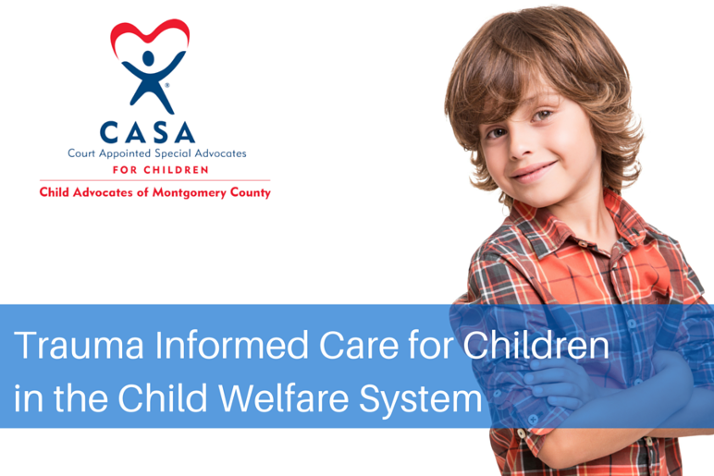Trauma Informed Care for Children in the Child Welfare System

It is heart-wrenching to think about child abuse or neglect—an innocent child subjected to trauma that can cause lasting effects. But this post is about how to negate those potential physical and emotional dangers.
Children entering the foster care system are more likely to be victims of complex trauma and polyvictimization through no fault of their own. Responsive relationships with caring adults can mediate the toxic stress. Of vital importance in youth-serving systems is understanding the young person’s response to trauma, then working to help in the healing process and promote emotional security for the child.
Many youth in foster care have suffered traumatic psychological or physical abuse, neglect, and dislocation. The challenge for the nurturing family is to understand and help the child work through these hurts so he/she can one day thrive and grow in a loving environment. Part of the process to help these children deal with their past is learning about the practices of trauma-informed care. Trauma-informed care focuses on treating the underlying causes and context of trauma rather than the symptoms. When children have experienced trauma, particularly multiple traumatic events over an extended period, their bodies, brains, and nervous systems adapt in an effort to protect them. The brain ensures that the child does not forget the trauma that is quite often experienced, as a mix of sensations including sounds, smells, sights and sensations that make him or her feel as if the event were re-occurring.
Children who have dealt with trauma may display the following symptoms:
- Avoidance
- Numbing
- Arousal
- Attachment issues
- Attention/concentration issues
- Impulsivity
- Oppositional behaviors
How do you, as foster or adoptive parents, caregivers or CASA Advocates deal with this?
- Do not take his or her behaviors personally or blame yourself.
- Stay calm and try to respond to misbehavior in ways that mitigate the outbursts.
- Keep your voice low. Yelling or showing aggression may only make things worse.
- Avoid staring or gazing directly at the child too long as this may be interpreted as a threat.
- If the child attempts to distance him or herself, remain available and responsive.
- Refrain from using physical discipline that might result in panic or out-of-control behavior.
- Allow the child his or her own feelings, attempting to teach the child how to describe his/her feelings and how to find acceptable ways to deal with those feelings, praising him/her for expressing emotions and remaining calm.
- Patience is a necessity. Years of trauma, abuse or neglect brought the child to this point. He or she must learn to trust once more and this is probably going to be a long journey of love and courage. Remain consistent, predictable, caring, and, although it is sometimes difficult, practice patience. Healing from trauma takes time.
- Seek help if you begin to struggle. Proven therapies are there to help children and parents adjust to trauma’s effects. Remember you are not alone.
Children who have suffered traumatic events deserve to feel safe and loved. CASA Advocates strive to help find safe, permanent, and nurturing homes as quickly as possible for abused and neglected children.
CASA Advocates take individual and focused personal interest in the children they represent. We believe that each and every child needs a voice in the system. If you would like to know more about CASA, visit our website or give us a call. We always welcome questions and interest.
